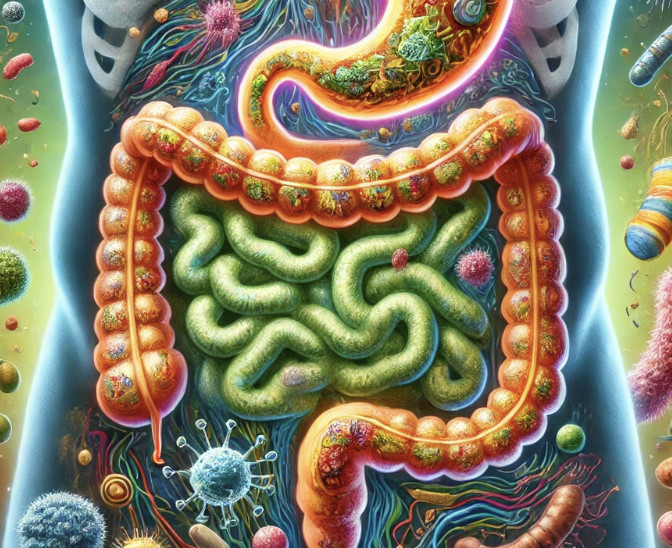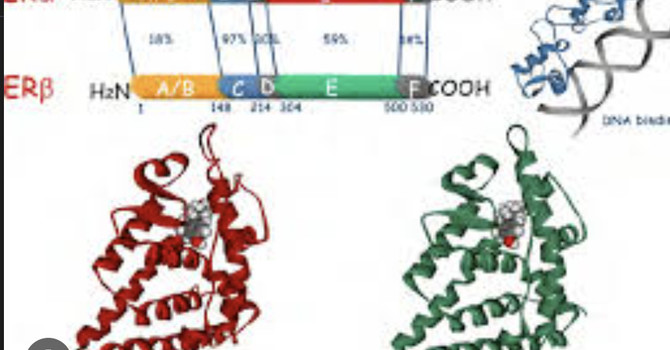
Menopause brings significant changes to a woman's body, affecting all part of her body including the gastrointestinal (GI) and immune systems. Menopausal Hormone Therapy (MHT) offers more than relief from hot flashes and mood swings—it plays a crucial role in supporting gut health, immune function, and overall well-being.
The Estrobolome: A Key Player in Hormonal Balance
The estrobolome, a subset of gut bacteria, metabolizes and regulates estrogen in the body. This internal estrogen recycling system influences hormone circulation. During menopause, declining estrogen levels disrupt the estrobolome's composition and function, leading to various GI symptoms and health issues.
Changes in the Gut Microbiome After Menopause
As estrogen levels decline, the makeup of our gut flora changes:
- Less microbiome diversity: After menopause, gut diversity declines, and women's gut population begins to look more like that of men.
- Fewer beneficial gut bacteria: Postmenopausal women tend to have more strains linked to obesity and fewer beneficial bacteria.
- Higher risk of health conditions: Changes in gut flora can contribute to anxiety, depression, and other health issues during perimenopause and menopause.
GI Symptoms During Menopause
Hormonal changes during menopause often result in GI symptoms such as:
- Bloating due to disrupted gut bacteria balance
- Constipation from slower gut motility
- Diarrhea caused by hormonal fluctuations
- Acid reflux exacerbated by changes in gut motility and microbiome composition
- Gallbladder issues due to altered bile production
How MHT Supports Gut Health
MHT alleviates many GI issues by addressing underlying hormonal imbalances:
- Restoring microbiome diversity
- Improving gut motility
- Protecting against gallbladder issues
- Reducing inflammation
A 2022 study found that menopausal women on hormone therapy had more diverse gut flora, similar to premenopausal women.
The Immune Benefits of MHT
MHT also supports immune health during menopause by regulating immune responses, reducing pro-inflammatory cytokines, and enhancing T-cell function and B-cell numbers.
Dietary Tips to Complement MHT
While MHT provides significant benefits, dietary changes can further support gut health:
- Eat a diverse diet rich in colorful fruits and vegetables, which provide fiber and nutrients to support a healthy gut microbiome.
- Aim for 25-35 grams of fiber per day from whole food sources like beans, cabbage, chia seeds, and avocados.
- Consider taking probiotics, prebiotics, or synbiotics to boost beneficial gut bacteria.
- Incorporate fermented foods like yogurt, kefir, sauerkraut, and kimchi as natural sources of probiotics.
- Follow an anti-inflammatory Mediterranean-style diet with fish, whole grains, and nuts to support gut health.
- Stay well-hydrated to support digestion and prevent constipation.
- Limit processed foods, excess sugar, and artificial sweeteners which can negatively impact the gut microbiome.
- Include phytoestrogen-rich foods like soy, flaxseeds, and sesame seeds.
Remember to be patient when making dietary changes, as it may take a few weeks for your gut to adjust to a healthier diet.
Conclusion
Menopausal Hormone Therapy is a powerful tool for restoring balance in the GI system and supporting immune health during menopause. By addressing hormonal imbalances, MHT alleviates digestive discomfort and enhances the body's defenses against inflammation and infection. Combined with dietary adjustments, MHT can help women navigate this important transition with optimal health. Always consult with a healthcare provider to determine the best approach for your individual needs.
Dr. Anat Sapan MD, specializing in peri/menopause care, advocates for a personalized approach combining Bioidentical Hormone Replacement Therapy with lifestyle strategies. Her telemedicine services in Arizona, California, Florida, Illinois, New York and Arizona. I aim to help women overcome menopausal symptoms and enhance their quality of life.

Anat Sapan, MD
Contact Me



